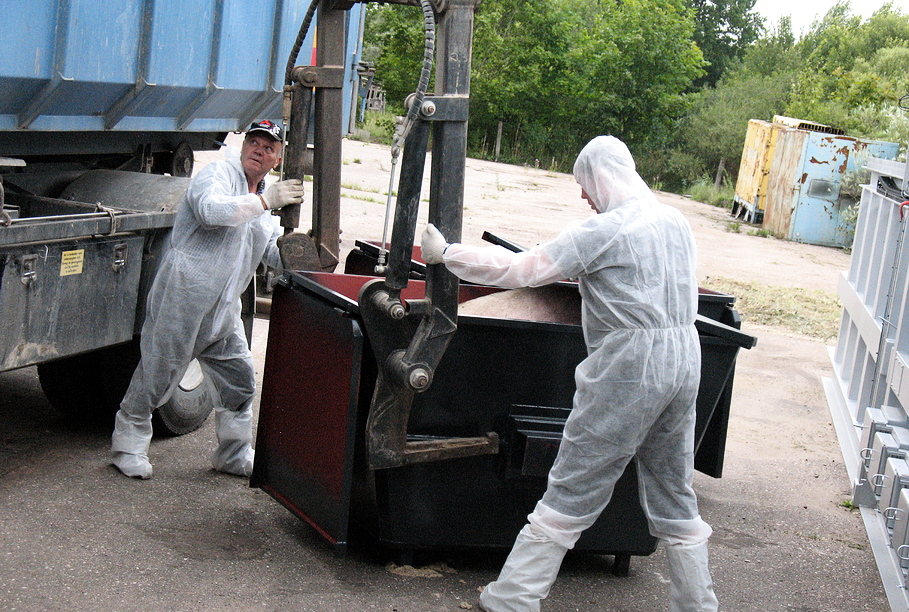The Agriculture and Finance ministries now have until Thursday to seek compromise solutions that will allow funding sources to become available during the remainder of the fiscal year.
Finance ministry representatives pointed out that the hiring of 20 new inspectors as well as wage increases for the already-working PVD inspectors from state budget emergency funds will affect financing for the ministry in subsequent years as well, therefore cannot be approved as proposed.
Nor can the Finance ministry suggest other sources of funding that could ensure the work of veterinary health inspectors into 2015. The best it could do was to suggest a terminated solution ending in 2014 that would not affect next year’s budget, such as bonus payments to current staff.
PVD spokeswoman Anna Joffe pointed out however that the inspectors are almost at the point of full exhaustion from the current load of work during the ASF crisis. Moreover, recruiting new inspectors with the proper knowledge and qualifications for just a four-month period is proving impossible, especially with a less-than-attractive salary package.
PVD representatives stress that the issue should have been addressed at least a month ago and must not be postponed any longer. Some inspectors are already said to be giving notice as a result of over-fatigue. As a result, the quality of their work in preventing the further spread of ASF deeper into Latvia may soon begin to suffer, PVD officials warn.
So far ASF has been confirmed in 75 wild boar, 66 domestic pigs in 30 homestead farms and one larger pig farm, with altogether 521 domestic pigs slaughtered. The most recent confirmations came Tuesday from a farm in Dagda district’s Bērziņi parish where four of a nineteen-pig herd were found to be infected, said Joffe.
The disease, which is deadly to pigs but harmless to humans, though easily spread on their footwear, clothing and vehicles, was first found in three wild boar a few meters from the Belarus border on June 26.
Further outbreaks of ASF have prompted the declaration of a state-of-emergency that has been in effect since July 2 and set to be in effect until October 1 in strictly restricted quarantine and monitoring zones inside many districts of Latgale and Vidzeme.
The PVD also received news Tuesday from its counterparts in Lithuania and Poland about further confirmations of ASF in the Ignalina vicinity and Podlaska region, respectively.































